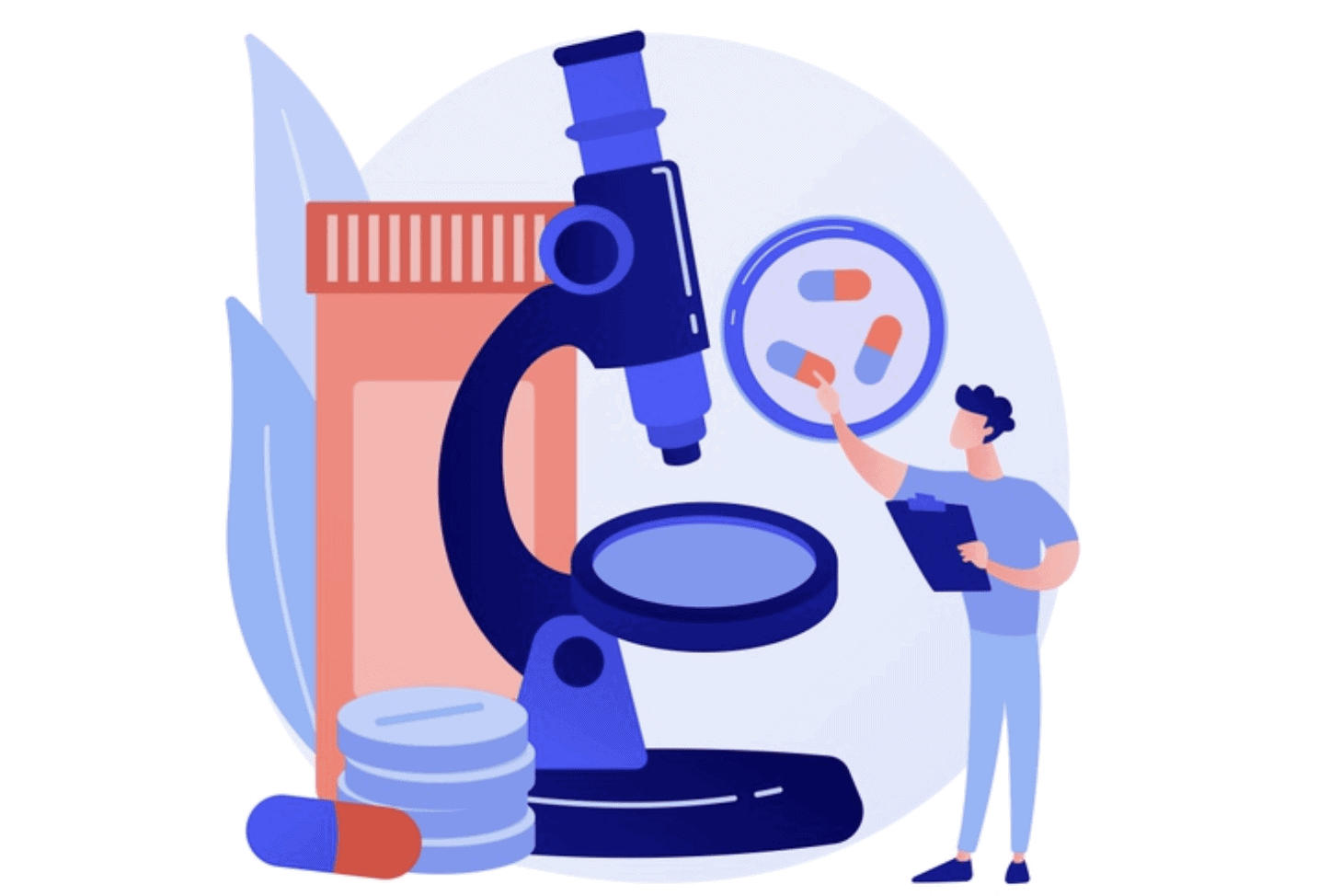Overdose deaths involving fentanyl and related drugs increased by over 16% from 2018 to 2019. Learn about fentanyl overdose symptoms, treatments, and things to do during an emergency. Fentanyl overdose symptoms can range from slowed breathing to coma. In recent years, overdose deaths have occurred primarily due to illegally manufactured fentanyl.
People abuse fentanyl for its heroin-like effects. They may also mix it with heroin or cocaine to enhance the euphoric effects. It causes a rapid high, even faster than heroin. Besides, it is cheap and readily accessible. These factors make it a preferred choice among heroin users. Notably, the high usually lasts 30 minutes. The short life span of the high usually means users require another dose to continue their desired feeling. Fentanyl abuse has surged in the last few years. No wonder the DEA calls it the “main driver” behind the current opioid crisis in the U.S.
What is Fentanyl?
Fentanyl is a human-made opioid (narcotic) used to treat cancer-related chronic pain. Compared to another prescription opioid, morphine, it is 50 to 100 times more powerful. Prescription fentanyl is available in the form of:
- Lozenge attached to a handle (Actiq)
- A patch (Duragesic)
- A sublingual tablet (Abstral) (used underneath the tongue)
- A film (Onsolis)
- A buccal tablet (Fentora) (placed between the gum and inside of the cheek)
- Injectable solution (Sublimaze)
Illegal fentanyl comes as tablets, powder, and spiked blotter paper. Fentanyl-laced eye droppers and nasal sprays may also be available. Fentanyl tablets sold on the street or online look like oxycodone 30 milligrams.

Fentanyl Street Names
- Apace
- China Girl
- Dance Fever
- China Town
- Goodfellas
- China White
- Great Bear
- He-Man
- Jackpot
- Murder 8
- Tango and Cash
Fentanyl Effects on the Brain and Body
Like other opioids, fentanyl acts on the brain areas that regulate pain sensation and emotions. The effects can include:
- Extreme happiness
- Drowsiness
- Nausea
- Confusion
- Constipation
- Sedation
- Problems breathing
- Unconsciousness
Is Fentanyl Addictive?
The United States is currently in the mists of an opioid crisis which is fueled by drug overdose death from the synthetic opioid Fentanyl, which is not only dangerous to use but can also lead to addiction. When used as prescribed, it can cause dependence, which may not always cause addiction.
That said, long-term abuse or use of illicit fentanyl can lead to addiction. Addiction is a long-term disease that causes a person to continue using the drug despite the known consequences. Because of a high risk of abuse, the DEA has categorized fentanyl as a Schedule II controlled substance.
What are the Treatments for Fentanyl Addiction?
Doctors treat fentanyl addiction with a combination of medicines and talk therapy. Medications such as buprenorphine and methadone help reduce cravings and withdrawal symptoms. Another drug called naloxone blocks the euphoric effects of fentanyl. The choice of medications can vary depending on the individual needs. Talk to your provider to learn which treatment is appropriate for you.
Talk therapy (psychotherapy) helps you identify how your attitudes and behaviors affect drug use. The types of psychotherapy used in fentanyl addiction are:
- Cognitive-behavioral therapy (CBT)
- Contingency management
- Motivational interviewing
Fentanyl Overdose Symptoms
If you use street fentanyl or prescription drug in ways other than prescribed dramatically increases the risk of overdose; Fentanyl overdose symptoms may include:
- Troubled breathing
- Shallow or slowed breathing
- Confusion
- Fainting
- Cold and clammy skin
- Decreased body temperature
- Bluish skin and nails due to low oxygen in the blood
- Coma and death
If you are using a transdermal patch, the following factors can increase the risk of overdose.
- Fever
- Intense physical activity
- The use of an electric blanket
How to Treat Fentanyl Overdose?
When you use drugs bought online or from a dealer, you may not know if it contains fentanyl. The antidote for fentanyl overdose is naloxone. Naloxone works by blocking opioid receptors and reversing the effects of opioids. It comes as an injectable solution, a hand-held auto-injector, and a nasal spray. Because fentanyl is a highly potent drug, multiple doses of naloxone are typically necessary.

In some states, naloxone is available without a personal prescription. Consider getting naloxone if you or someone you love is at a higher risk of overdose. Most cases of overdose do not require specialized treatment. The recovery rate is excellent, provided the person receives naloxone immediately.
What Can You Do If Someone Has Overdosed on Fentanyl?
If someone near you has fentanyl overdose symptoms, call 911 immediately. Tell the call-taker that “someone has stopped breathing” or “It looks like an overdose.” Until the medical personnel arrives, consider the following.
- If the person has fainted, put them in the recovery position. Lie on their side with knees bent.
- Check if injuries have occurred due to falling.
- Never leave the person unattended. If you need to go, make sure the person is in the recovery position.
- Regularly check their breathing and clear the airways, if required.
- Perform mouth-to-mouth resuscitation if breathing has stopped.
- Administer naloxone (Narcan) (if available and you know how to use it).
Can You Prevent Fentanyl Overdose?
The following tips can help prevent opioid overdose and overdose-related death.
- Presume that fentanyl may be present in any pill, powder, or other drugs you get from a dealer, friend, or online.
- Avoid using it alone. Instead, inform a friend that you are going to use the pills or other drugs. They can help you in case an overdose occurs.
- Always carry naloxone (Narcan) with you. Inform your friend or family where you store it.
- Use only a tiny amount of the drug in the beginning. Increase the dose slowly. Doing so is critical to understanding how the drug affects you. It also allows you to stop using it if you feel something is not right.
- When using drugs in a group, go one by one. Watch how the drug affects your friend.
- Avoid using too many drugs at a time. Mixing fentanyl with other narcotics, alcohol, or downers can cause immediate death.
Key Takeaways
- Fentanyl is the primary cause of opioid-related deaths in the U.S.
- Doctors prescribe fentanyl to treat severe pain; when used as prescribed, there is a limited risk of overdose and addiction.
- Fentanyl overdose is a potentially fatal condition that occurs when you consume large amounts of the drug in a short period.
- Naloxone is the antidote for fentanyl overdose. There are two naloxone preparations – auto-injector and nasal spray.
- In some states, naloxone is available without a personal prescription.
FAQs
Do take-home test strips work for preventing fentanyl overdose?
These test strips are an effective tool for fentanyl overdose prevention. A positive test result may cause a user to throw away the drug or become cautious with its use.
How long does fentanyl stay in your system?
Detectable amounts of fentanyl stay in your system for 1 to 2 days following use. However, fentanyl may not show up on all types of opiate screening.
Where can I get help for opioid addiction?
Opioid addiction is one of the most common addictions, and sometimes there is a need for detoxification before beginning addiction treatment. Pacific Sands Recovery Center can help with any stage of opioid addiction from detoxification to aftercare, call 949-426-7962 for help.
